Most listeners, when they talk about music, do so in very general terms which mainly involves the genres they like and have listened to, or they favorite singers and bands. This is normal, as we often experience music from a "popular culture" point of view, which does not mean that it should be that way or that is it bad. We rarely think about what are the elements that shape the music, that gives it a structure, cohesion, meaning, and what allows us to conceptualize it.
You'll obviously be the exception to this if you're a musician or a music student.
Like many other things in its early stages, music began intuitively, naturally, and as time goes by we developed a system for understanding and teaching it, at the moment, in order to do so, it is necessary to manage the main elements that make the Music: Rhythm, melody, and harmony.
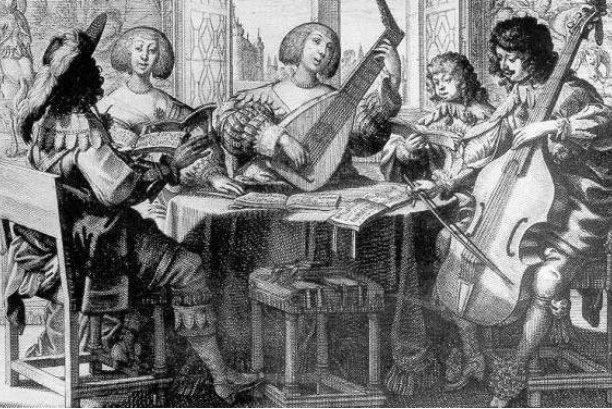
Source
Music is an art that involves love and dedication, and many years of practice and study to become masters and "true musicians". But it is also something that each of us can learn little by little, music is not exclusive and it is something that accompanies us from birth to death and even though there is a language to understand and write it, if we see music as "making art with sounds", then there should be no limitation to learn if you have an ear, your voice or a musical instrument.

Source
I suppose that having reached this point you will ask yourself: Is it true what this man says? Can you learn music without learning to read music or study it academically?
Music overcomes limitations
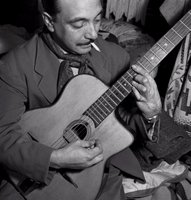
Source
A great example of this is Django Reinhardt, who taught himself to play guitar with only two fingers on his left hand after having suffered an accident during a fire in his caravan. He spent about 2 years in learning to play guitar by ear, listening to jazz of the time and also classical music, from impressionists such as Maurice Ravel, Claude Debussy and Gabriel Faure, baroque masters such as Johann Sebastian Bach, and romanticism composers such as Frederick Chopin and Franz Liszt.
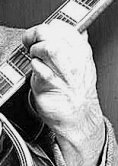
Django's left hand
Source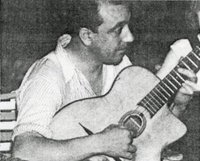
Django playing with his friends and being the fucking boss
SourceDjango made music since he was a child, he played banjo and violin, he was illiterate and never learned to read music. In spite of that, his music told us a lot, he possessed an impressive technique, a sense of swing that marked a before and after in jazz and also a musicality that brought him closer to both classical and flamenco music apart from jazz.
He played octaves on the guitar before Wes Montgomery, made use of bends before BB King and he also did shred long before Yngwie Malmsteem.
There's no better proof of this than his music.
Django's Tiger, a tune with a fast tempo, by listening to this you can testify to the level of virtuosity and musicality he had, both improvising and accompanying, his way of responding harmonically to the melodies of the violin is similar to the arrangements of the big bands of the time, a genius, without a doubt.
Improvisation 1, a work for solo guitar, in which we can hear the influences of classical music and also a touch of flamenco... You can feel the air of Rachmaninoff, Chopin, and Liszt.
This man is an example not only of personal self-improvement and willpower but also a sign that music is a language that breaks down barriers and where limitations practically do not exist, as long as there is love for what we do, perseverance and dedication.
It is never too late to learn, difficulties will always be present
In my career and constant learning as a musician, Django is a source of constant inspiration and will. By knowing his story, I understand that the only limitations are those that I set to myself. I also learned that our defects and limitations, when accepted and transcended, give us a victory over ourselves and the world, we are no longer victims, we are now responsible for our own lives.
The secret lies in maintaining the humility necessary to grow through constructive criticism, but also in having the courage to keep moving forward despite the opinions of others.
Django may have spent those 2 years lying in the hospital bed, but instead of that, he decided to put in more than 8 hours of daily effort to create a style in the world of jazz guitar that would change the music forever.
It is up to each of us to decide what we want to do with our lives, no one can make that decision for us.
Curiously, music, and everything that revolves around it can teach us much more than just music.
Sources of content:
Django Reinhardt: Three-Fingered Lightning - Christian Cascio
Swing guitar : The Genius of Django Reinhardt - EFOR FILMS
Siv Lie - Django Reinhardt's Singular Influence on Gypsy Jazz -
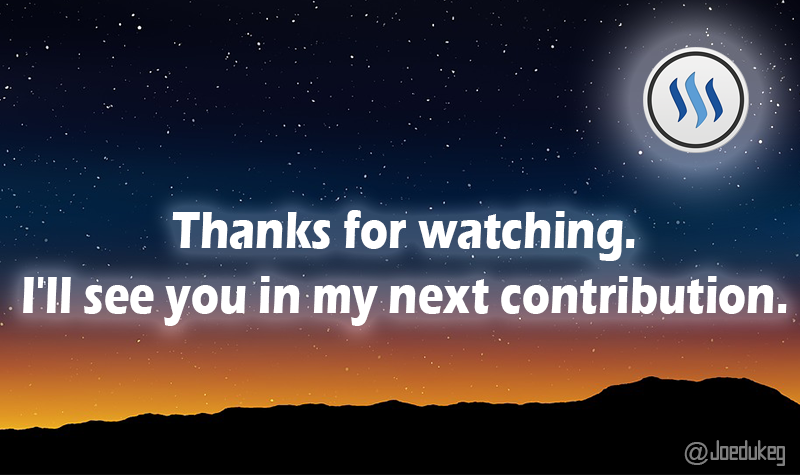
Design: @Cre47iv3


